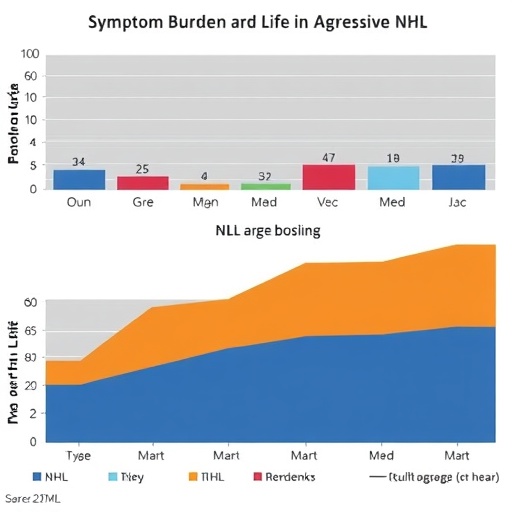
In a groundbreaking study published in BMC Cancer, researchers have uncovered a novel mechanism by which fibrate lipid-lowering drugs can be repurposed to enhance immunotherapy against bladder cancer. This discovery centers on fenofibrate (FNF), a widely-used drug typically prescribed to reduce cholesterol and triglycerides, which has now been shown to exert potent antitumor effects by modulating mitochondrial function and the immune checkpoint molecule CD276. The findings open an exciting avenue for developing more effective therapies for bladder cancer, a malignancy often resistant to conventional treatments.
Bladder cancer remains a formidable clinical challenge due to its tendency for recurrence and progression, as well as the limited efficacy of existing immunotherapies in many patients. The study delves into how fenofibrate, together with other fibrate drugs such as bezafibrate and clofibric acid, impacts bladder cancer cell viability. Among these, fenofibrate demonstrated the strongest inhibition of MB49 bladder cancer cell growth, an effect that was dose-dependent and quantitatively expressed with an IC50 value around 129 µM. These results suggest a direct cytotoxic effect of fibrates on tumor cells, beyond their established metabolic roles.
At the heart of fenofibrate’s antitumor mechanism lies its influence on mitochondrial function. Specifically, fenofibrate inhibits Complex I of the mitochondrial respiratory chain, a critical driver of ATP synthesis. The blockage of this complex leads to a cascade of metabolic disturbances including impaired ATP generation and increased production of reactive oxygen species (ROS). This induction of mitochondrial stress compromises tumor cell viability, underscoring the mitochondria’s pivotal role not only in energy metabolism but also in cancer cell survival.
Beyond metabolic disruption, fenofibrate activates the AMP-activated protein kinase (AMPK)/mTOR signaling pathway. AMPK serves as a cellular energy sensor and when activated, it inhibits mTOR, a key regulator of cell growth and proliferation. The study revealed that fenofibrate’s modulation of this pathway contributes significantly to its antitumor activity. Intriguingly, the researchers demonstrated that blocking AMPK activation with the inhibitor Compound C reversed the suppression of CD276 expression, implicating this pathway as critical for fenofibrate’s immunomodulatory effects.
CD276, also known as B7-H3, is an immune checkpoint molecule that enables cancer cells to evade immune surveillance. Its high expression is commonly associated with poor prognosis in various tumors, including bladder cancer. This study highlights how fenofibrate downregulates CD276 in a concentration-dependent manner, which in turn facilitates enhanced T cell-mediated antitumor immune responses. The reduction of this immunosuppressive molecule effectively “unmasks” the tumor cells, allowing cytotoxic T cells to perform more efficiently.
Confirming the immunological impact of fenofibrate, the researchers observed an increased secretion of key cytokines such as interferon-gamma (IFN-γ) and tumor necrosis factor-alpha (TNF-α) from T cells upon treatment. These cytokines are critical to orchestrating an effective antitumor immune response by promoting T cell proliferation, activation, and tumor cell killing. The data suggest that fenofibrate not only hits tumor cells directly via mitochondrial dysfunction but also reconditions the tumor microenvironment to enhance immune attack.
Complementing in vitro findings, in vivo experiments using a nude mouse xenograft model showed that knocking down CD276 significantly inhibited bladder tumor growth without adverse effects on body weight, indicating a safe therapeutic window. Moreover, fenofibrate treatment demonstrated superior tumor inhibition rates compared to a monoclonal antibody targeting CD276, a promising indication for drug repurposing strategies.
Histological examinations of tumor tissues post-fenofibrate treatment revealed increased infiltration by CD3+, CD4+, and CD8+ T cells, providing direct evidence of improved immune cell recruitment into the tumor microenvironment. This enhanced infiltration is likely a consequence of fenofibrate’s combined metabolic and immunomodulatory effects, positioning it uniquely as a dual-action agent against bladder cancer.
Importantly, safety assessments demonstrated that fenofibrate did not induce significant hepatorenal toxicity in treated mice, an essential consideration for translational application. The favorable safety profile supports further clinical evaluation and integration of fenofibrate into bladder cancer treatment regimens, especially for patients who exhibit resistance to conventional immune checkpoint inhibitors.
This comprehensive investigation taps into the potential of known lipid-lowering medications to revolutionize cancer therapy by targeting the mitochondrial complex I-AMPK/mTOR-CD276 axis. It underscores the multifaceted role of metabolites and metabolic pathways in tumor immune evasion and the possibility of reversing immune suppression with drugs outside the canonical immunotherapy arsenal.
Such drug repurposing endeavors are particularly attractive due to shortened timelines for clinical implementation, given the established safety records of compounds like fenofibrate. By illuminating fenofibrate’s novel antitumor mechanisms, the study paves the way for combination therapies that may overcome the limitations of current immune checkpoint blockade treatments in bladder cancer.
The broader implications of this work extend to other malignancies where CD276 expression contributes to immune escape. Targeting metabolic checkpoints coupled with immunosuppressive molecules offers a tantalizing strategy to reinvigorate immune responses and improve patient outcomes.
Future research building on these findings may explore the synergistic potential of fenofibrate with other immunotherapies, dosage optimization, and the identification of patient subgroups most likely to benefit from such treatments. The integration of metabolic inhibitors and immune modulators represents a promising frontier in the ongoing battle against cancer.
In conclusion, fenofibrate’s ability to disrupt mitochondrial function, activate AMPK signaling, and downregulate CD276 expression reveals a complex mechanism by which a familiar lipid-lowering drug can double as a potent enhancer of bladder cancer immunotherapy. This innovative approach not only challenges existing paradigms but also highlights the untapped therapeutic potential lying within metabolic regulators to reshape cancer treatment landscapes.
Subject of Research: Investigation of fibrate lipid-lowering drugs, particularly fenofibrate, in inhibiting CD276 expression and enhancing immunotherapy in bladder cancer through modulation of mitochondrial function and the AMPK/mTOR pathway.
Article Title: Mechanisms for fibrate lipid-lowering drugs in enhancing bladder cancer immunotherapy by inhibiting CD276 expression
Article References:
Li, C., Liu, J., Wang, L. et al. Mechanisms for fibrate lipid-lowering drugs in enhancing bladder cancer immunotherapy by inhibiting CD276 expression. BMC Cancer 25, 1404 (2025). https://doi.org/10.1186/s12885-025-14855-w
Image Credits: Scienmag.com
DOI: https://doi.org/10.1186/s12885-025-14855-w
Tags: antitumor effects of fibratesbladder cancer resistance to treatmentBMC Cancer study findingsCD276 immune checkpoint moleculedose-dependent cytotoxicity in cancerfenofibrate and MB49 cell growthfenofibrate immunotherapy enhancementfibrates in bladder cancer treatmentinnovative therapies for bladder cancerlipid-lowering drugs in oncologymitochondrial function and cancerrepurposing drugs for cancer therapy




